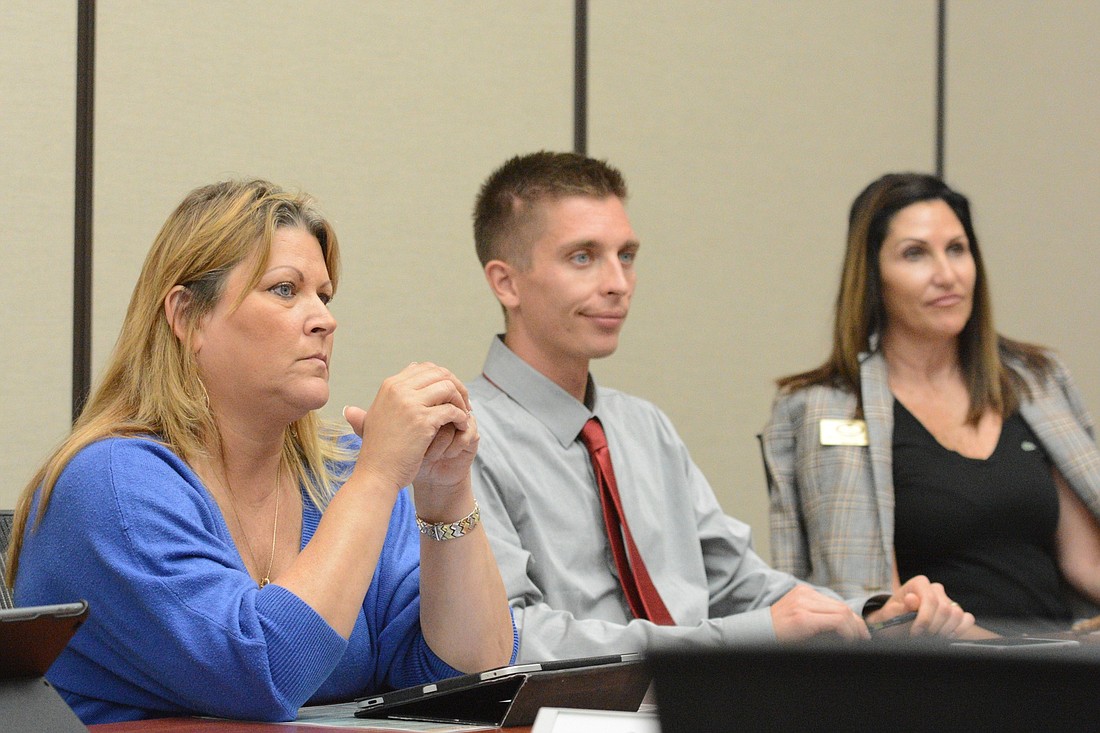- April 25, 2024
-
-
Loading

Loading

In a split 3-2 vote, Palm Coast’s City Council at its May 2 meeting approved a contract that the city hopes will help it eliminate gaps in local cell phone service.
The contract with Diamond Communications requires Diamond to map out the dead zones for major carriers. Diamond would then entice the carriers to fill the gaps, with Diamond taking a share of the revenue from any new contracts with carriers.
The vote at the council meeting followed almost an hour and a half of discussion by the council as City Councilman Nick Klufas implored his colleagues to table the proposal until Gov. Rick Scott decides whether to sign proposed legislation into law. The law would allow communications companies to add infrastructure on public rights of way and pay the municipality only $150 per year, per communications pole.
The legislation comes as carriers are preparing to move to fifth-generation wireless technology, which would use a Distributed Antenna System, or DAS. Under that system, signals would be relayed by antennas on a series of poles that are about 50 feet tall.
"What I think is very important is that we not sit back and wait for all of this to happen around us. Now’s the time where we need to update our ordinances; we need to move forward."
— JIM LANDON, city manager
Unlike large, lattice-style cell towers, the poles can be placed almost anywhere.
That gives the carriers much more space in which to operate.
“They’re going to come to cities and say, ‘Hey, can we put our stuff on your poles,’ or, ‘Can we install our poles on your public right of way?’” Klufas said. Under the new law, Diamond could not intercede to halt such arrangements, and there would be less incentive for carriers to pay to install antennas on existing city towers.
Klufas suggested that the city could handle negotiations with the carriers itself, and use the $150-per-pole revenue to help finance streetlights for safety.
Because the DAS would require poles every few hundred yards, there could be thousands of poles added to the city.
City Manager Jim Landon said the state legislation wouldn’t negate the effectiveness of the city’s contract with Diamond.
“We’re really talking apples and oranges here,” he said, “This new legislation is about public right of way — our streets. It is not about our existing towers”
It’s still useful to try to entice carriers to use those existing towers, Landon said.
The other thing Diamond would do, Landon said, is give the city some advice on crafting its regulations in a way that encourages carriers to do business in the city.
The contract, Landon said, could be amended to comply with potential changes in state law.
“What I think is very important is that we not sit back and wait for all of this to happen around us,” Landon said. “Now’s the time where we need to update our ordinances; we need to move forward. But in order to do that, we need experts to help us, and this contract is: They will help us at no cost.”
The arrangement with Diamond will cost the city revenue from its towers in the future. Although Diamond wouldn’t receive any money unless it brought contracts to the city, it would then take 35% of revenue from new carriers’ leases on the city’s towers, and, if an existing lease is modified, 25% of the new revenue from that lease.
If new towers would be built, Diamond would pay Palm Coast $25,000 at start of construction, but then take 60% of the revenue. Diamond would receive that revenue for 25 years, and would have the exclusive right to represent the city in negotiations with carriers for five years.
Klufas suggested the city consult with an independent expert on the ramifications of the pending state law and coming changes in technology before signing a contract. He said he’d reached out directly to government services representatives from carriers, and that they’d seemed eager to negotiate directly with the city, not with an intermediary.
"(Carriers are) going to come to cities and say, 'Hey, can we put our stuff on your poles,' or, 'Can we install our poles on your public right of way?'"
— NICK KLUFAS, city councilman
Landon had said at a previous workshop that the city had had trouble trying to deal with carriers directly.
Councilwoman Heidi Shipley agreed with Klufas, saying she was concerned that a carrier might be wary of dealing with the city through Diamond. She suggested seeking advice from a consultant.
Councilman Steve Nobile didn’t want to wait.
“I like Nick’s idea; I really do,” he said. “But I don’t want to put on hold taking action today waiting for the new technology. Because if we do that, we can technically do that forever, because technology’s always new.”
In the meeting's public comment period, former city councilman David Ferguson urged caution. "Everybody agrees that we need better cell service," he said. "I'm not sure if Diamond Communications would be the best solution." He suggested waiting 30-60 days for the city to learn more about the ramifications of the opening state legislation.
Resident Jack Carall wanted the city to take action. "How many times can we table something," he said. "It’s here; vote on it."
Klufas made a motion that the city table the proposed contract for 60 days, to give staff time to seek out expert advice. That motion was voted down, with only Klufas and Shipley in favor.
Nobile made a motion to approve the contract with Diamond Communications. It passed 3-2, with Klufas and Shipley dissenting.